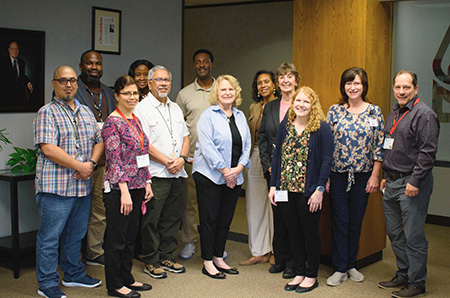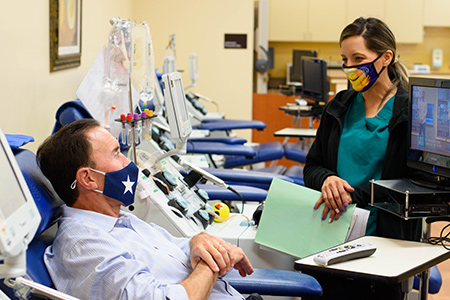
AABB Accreditation promotes the highest standards of quality and safety for blood and biotherapies facilities.
Blood, biotherapies and specialized service provider facilities throughout the world attain AABB accreditation to demonstrate a commitment to quality and safety while continuously improving operations. AABB-accredited facilities can be found in more than 50 countries worldwide, and AABB has been leading the field in ensuring high quality assessment and accreditation since 1957.
AABB provides accredited facilities with a well-recognized mark of uncompromising quality. Our accreditation process is based on AABB’s renowned quality systems approach that helps to optimize existing processes.
AABB offers accreditation for many activities, based on expert-developed standards for facilities that perform the following:


Gulf Coast Regional Blood Center is one of the largest community blood centers in the United States, serving 26 counties and more than 170 hospitals and health care institutions.
Achieving AABB Accreditation can help your facility attain and, in many cases, exceed federal and state requirements. In instances where AABB has been granted deemed status, your AABB assessment may additionally serve as your facility’s federal- or state-mandated inspection.
AABB’s Standards and Accreditation Programs are recognized in several states’ laws and regulations, as well as by external accreditation organizations. Additionally, payers’ policies recognize AABB Standards and Accreditation, which is a prerequisite for insurance coverage and reimbursement. For example:
AABB is continuously advancing policies that promote adequate, appropriate access to safe, clinically effective transfusion medicine and cellular therapies. View AABB’s Advocacy Agenda to learn more.
Learn more about the accreditation process, including accreditation phases and expectations, and steps to become accredited.
“AABB allows facilities to demonstrate their commitment to quality and safety while raising trust amongst donors, patients, and clients. In addition, having a third-party endorsement differentiates you from competitors and gives you a broader opportunity to increase your overall footprint.”
— Marc Lewis, Vice President of Operations, Gulf Coast Regional Blood Center
AABB is one of only three accrediting agencies in North America that is accredited by ISQua, the International Society for Quality in Health Care. This certification means that AABB is independently assessed for its accreditation programs assuring objective rigor.
